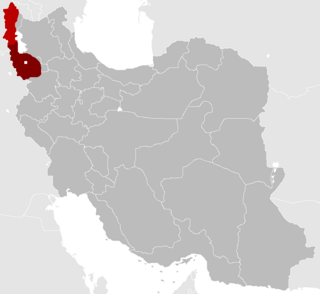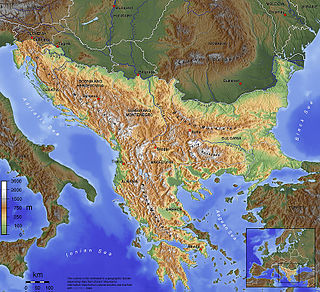
A United Nations Security Council resolution (UNSCR) is a United Nations resolution adopted by the Security Council (UNSC), the United Nations (UN) 15-member body charged with "primary responsibility for the maintenance of international peace and security".
A United Nations General Assembly resolution is a decision or declaration voted on by all member states of the United Nations in the General Assembly.

A United Nations resolution is a formal text adopted by a United Nations (UN) body. Although any UN body can issue resolutions, in practice most resolutions are issued by the Security Council or the General Assembly, in the form of United Nations Security Council resolutions and United Nations General Assembly resolutions, respectively.

United Nations Security Council Resolution 3 was adopted on 4 April 1946. The Council acknowledged that Soviet troops occupying Iran were not removed in accordance with the Tri-partite Treaty of 29 January. Further proceedings surrounding the Iranian crisis were deferred until 6 May, when Soviet withdrawal was to be complete.

United Nations Security Council Resolution 4 was adopted on 29 April 1946. The Council condemned Francoist Spain and formed a sub-committee to assess the conflict in the country.

United Nations Security Council Resolution 5 was adopted on 8 May 1946. The Council deferred further proceedings surrounding the Iranian crisis until Iran submitted a complete report on the subject.

United Nations Security Council Resolution 10 was adopted unanimously on 4 November 1946. The Council determined that Francoist Spain no longer warranted continuous observation and turned over all related documents to the General Assembly.

United Nations Security Council Resolution 12 was adopted on 10 December 1946. The Council invited Greece and Yugoslavia to participate in discussions surrounding allegations of British troops interfering in Greece's internal affairs. Albania and Bulgaria were invited to present declarations before the Council.

United Nations Security Council Resolution 15 was adopted unanimously on 19 December 19 1946. The Council established a commission of investigation into the alleged border violations between Greece and Albania, Bulgaria, and Yugoslavia.

United Nations Security Council Resolution 17 was adopted on 10 February 1947. The Council declared that the commission established by Resolution 15 did not have the authority to request the governments of Greece, Albania, Bulgaria, or Yugoslavia to postpone any executions of political prisoners unless the commission believed they could provide testimony helpful to its work.

United Nations Security Council Resolution 44, adopted on 1 April 1948, having received the reports requested in United Nations Security Council Resolution 42, the Council requested the Secretary-General convoke a special session of the General Assembly to consider further the question of the future government of Palestine.

United Nations Security Council Resolution 53, adopted on 7 July 1948, took into consideration a telegram from the United Nations Mediator in Palestine dated 5 July 1948. The resolution "addresses an urgent appeal to the interested parties to accept in principle the prolongation of the truce for such period as may be decided upon in consultation with the Mediator."

United Nations Security Council Resolution 73, adopted on August 11, 1949, noted with satisfaction the Armistice Agreements between the parties involved in the 1948 conflict in Palestine and then expressed the hope that a final settlement of all questions outstanding between the parties might be achieved soon. The Resolution went on to relieve the Action Mediator in Palestine, as his duties had been fulfilled, and requested the Secretary-General arrange for the continued service of the personnel of the present Truce Supervision Organization as may be required in observing and maintaining the cease-fires and Armistices. The Resolution also requested that the Chief of Staff of the TSO report to the Council on the observance of the cease-fire.
United Nations Security Council Resolution 78, adopted on October 18, 1949, having received and examined the proposals contained in the working document on the implementation of United Nations General Assembly Resolution 192, adopted by the United Nations Commission on Conventional Armaments the Council requested the Secretary-General transmit these proposals and the records of the discussion on this question in the Council and the Commission for Conventional Armaments to the General Assembly.

United Nations Security Council Resolution 282, adopted on July 23, 1970, concerned by violations of the arms embargo passed against South Africa in Resolution 181, the Council reiterated its total opposition to the policies of apartheid and reaffirmed its previous resolutions on the topic. The Council called upon states to strengthen the arms embargo by ceasing the provision of military training to members of the South African armed forces and by taking appropriate action to give effective to the resolution's measures.
United Nations Security Council Resolution 284, adopted on July 29, 1970, submitted the following question to the International Court of Justice for an advisory opinion: "What are the legal consequences for States of the continued presence of South Africa in Namibia notwithstanding Security Council resolution 276 (1970)?". The Council requested the Secretary-General transmit the resolution, along with all documents likely to shed light on the question to the Court.

United Nations Security Council Resolution 303, adopted on December 6, 1971, after a lack of unanimity at the 1606th and 1607th meetings of the Council prevented it from exercising its primary responsibility, the Council decided to refer the question to the General Assembly.
The official languages of the United Nations are the six languages used in United Nations (UN) meetings and in which the UN writes all its official documents.

The Spanish question was the set of geopolitical and diplomatic circumstances that marked the relationship between Spain and the United Nations between 1945 and 1955, centred on the UN's refusal to admit Spain to the organization due to Francoist Spain's sympathy for the Axis powers, defeated in World War II.












